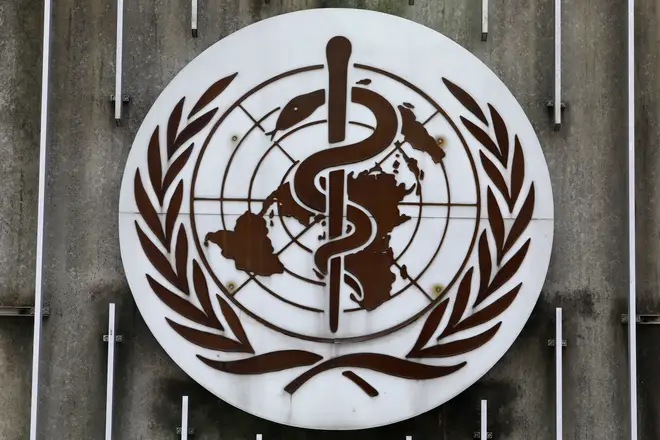
Paul Brand 3pm - 6pm
15 April 2020, 07:01

With US President Donald Trump cutting funding to the World Health Organisation, many people have been asking what is the WHO and what does the UN agency do?
President Trump has said the organisation failed to carry out its "basic duty" around coronavirus and must be held accountable.
He announced the US is freezing payments to the World Health Organization (WHO) over its handling of the coronavirus pandemic.
The President claimed the outbreak could have been contained at its source and spared lives had the UN health agency done a better job investigating reports coming out of China
So what is the WHO and what do they do to fight diseases? Here's everything you need to know about the WHO:

WHO Director-General encourages countries to "Test, Test, Test" to deal with Covid-19
The WHO is a body responsible for international health which is part of the United Nations. It aims to "promote health, keep the world safe and serve the vulnerable".
The origins of an international body for health matters date back to International Sanitary Conferences, with the first one held in 1851 in France to discuss quarantine regulations around cholera. After the Second World War, a range of world health bodies - including one for the League of Nations - were combined to form the WHO.
The WHO has 194 member states, one more than the United Nations. Liechtenstein is not a member of the WHO but is in the UN, and the reverse is true of the Cook Islands and Niue. Member states appoint an Assembly to determine policies and financial matters.
Listen & subscribe: Global Player | Apple Podcasts | Google Podcasts | Spotify
There are three main strands to the WHO's work, with its efforts dealing with health emergencies currently in the spotlight. With coronavirus, the organisation said it supports development of tools, detects and responds to acute health emergencies and supports the delivery of services in "fragile settings".
This is due to the difficult relationship between China and Taiwan. Membership of the WHO is only granted to members of the United Nations - of which Taiwan is not - or those whose applications are approved by the assembly. There has been increased pressure for Taiwan to be allowed to participate in light of the outbreak.

Travel resumes as Wuhan lockdown is lifted
The budget has two sources of income: assessed and voluntary contributions. Assessed contributions are calculated relative to the country's wealth and population, with the United States paying 115,766,922 dollars (£91,455,868) in the two years between 2020-2021, compared to 9,570 dollars (£7,560) for Liberia. The UK's assessed contributions are 21,851,530 (£17,262,708) for the same period.
Voluntary contributions come from a number of sources, including countries, to the Bill and Melinda Gates Foundation and European Commission. According to the WHO, the US is the largest funder when assessed and voluntary contributions are pooled together, at 14.67%, followed by the Bill and Melinda Gates Foundation at 9.76%, the GAVI Alliance at 8.39% and the UK at 7.79%.
The thrust of Mr Trump's argument is the WHO should have investigated early reports more thoroughly. The organisation has previously come in for similar criticism, with a damning report into the Ebola outbreak saying it failed to act quickly when early signs of the outbreak emerged in 2014.
UN secretary-general Antonio Guterres has said the WHO is "absolutely critical" to coordinating global efforts to combat Covid-19, adding the right time to look at its work is "once we have finally turned the page on this pandemic".